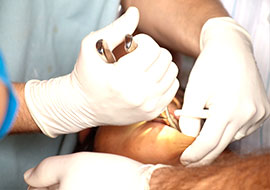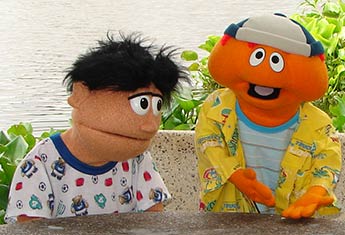Puppets: Cambodians are not over stimulated with media. Unlike western cultures, puppet shows prove over and over to be highly effective means of communicating and teaching important concepts to ALL ages. Elementary and high school students are captivated by the RDI puppet presentations.
What better way to teach about water, than with a frog who knows all about water? What better way to talk about the private subject of diarrhea than with a little girl puppet telling the students how she mixed salt, sugar and water to make a remedy for her younger brother?
Magic Tricks: While visual object lessons are more and more common in the United States, RDI has used simple tricks to demonstrate health concepts. It may seem very improbable to an uneducated person that a germ you cannot see can hurt your health. A great way to visualize this concept is to make a clean silk vanish and make a dirty silk appear. When explained thoroughly, the “magical” becomes practical and helps the students remember key concepts.
Hands On: Using hands on demonstrations are also very effective. For instance, in the water program teachers recruit a volunteer to demonstrate to the class how to wash their hands with soap. This is just another way RDI makes learning visual and practical. Many students will use soap for the first time in our program. (RDI volunteers also distribute soap at the end of these presentations.)








